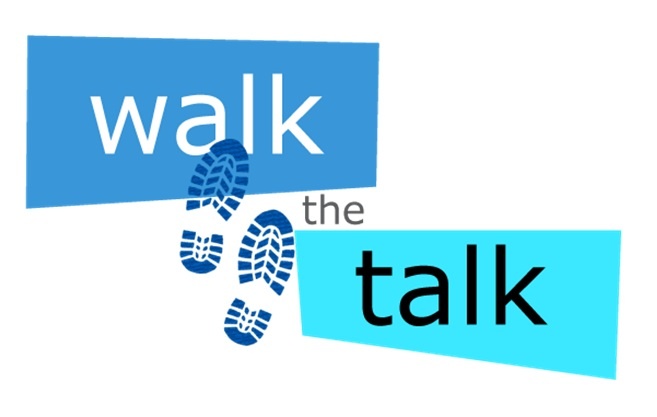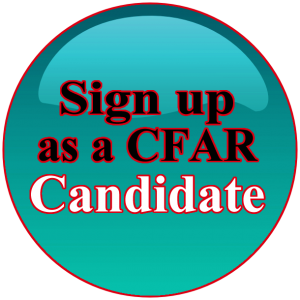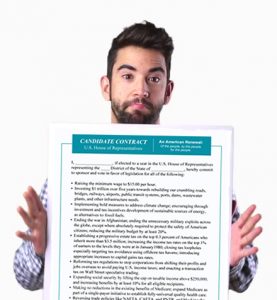 It’s common knowledge that careerist, establishment political candidates will say anything now to get elected. Truth is a secondary consideration, occasionally visited and usually by accident. Well-funded campaigns have teams of spin doctors, speech writers, even psychologists, putting together mountains of pleasant sounding babble to distract, dazzle, hypnotize, and confuse the voting public. When an honest, straight-talking candidate comes along, he or she will be under assault by the slick and highly-groomed establishment candidates with pre-prepared talking points, boilerplate attacks, vicious distortions and misrepresentations — all focus-group tested and spit-polished, designed to discredit a solid, worthy, honest message.
It’s common knowledge that careerist, establishment political candidates will say anything now to get elected. Truth is a secondary consideration, occasionally visited and usually by accident. Well-funded campaigns have teams of spin doctors, speech writers, even psychologists, putting together mountains of pleasant sounding babble to distract, dazzle, hypnotize, and confuse the voting public. When an honest, straight-talking candidate comes along, he or she will be under assault by the slick and highly-groomed establishment candidates with pre-prepared talking points, boilerplate attacks, vicious distortions and misrepresentations — all focus-group tested and spit-polished, designed to discredit a solid, worthy, honest message.
There’s only one way for a populist-progressive candidate to defend against this sort of unsavory campaigning. And that’s to go on the attack!
The CFAR is the weapon of choice. There is no defense against it. Why? Because the CFAR commitment to voters is in plain English, in writing, it’s a legally-binding contract, spelling out in clear, unambivalent terms EXACTLY where the populist-progressive candidate stands on key issues. The slippery, slick-talking opponents can make pretty sounds with their lips, mug for the cameras, and wave their arms, but there’s nothing that they can do to counter the unambiguous, powerful, game-changing language contained in the CFAR.
Thus, any candidate embracing a populist-progressive agenda should sign the CFAR and make it central to his or her campaign.
In other words, as the powerful tool it is — for it to be completely effective — the CFAR should be front and center in a campaign. It provides a clear framework for a positive, forceful campaign, and puts a lock on controlling the conversation, framing the narrative, and replacing the typical campaign smoke-and-mirrors with clarity and decisiveness.
It puts populist-progressive candidates on the offensive, and their smooth-talking neoliberal-establishment opponents on the defensive.
To reinforce the main thrust of the strategy, here are suggestions for CFAR candidates on what to say along the way — to voters and critics alike. These ideas and choice of language came out of extensive brainstorming sessions we’ve had, based on the negativity, “gotcha” skepticism, and high level of cynicism which have become pandemic in the adversarial culture of contemporary politics.
We hope they prove useful:
![]() “Why do I keep bringing up the Contract For American Renewal? Because talk is cheap. Campaign promises usually evaporate the day after elections. I’ve eliminated all of the guess work here. My constituents now know exactly what I’ll be doing from day one when I arrive in Washington DC. Of course, my opponent won’t sign the contract, so in terms of what he’ll be doing, your guess is as good a mine.”
“Why do I keep bringing up the Contract For American Renewal? Because talk is cheap. Campaign promises usually evaporate the day after elections. I’ve eliminated all of the guess work here. My constituents now know exactly what I’ll be doing from day one when I arrive in Washington DC. Of course, my opponent won’t sign the contract, so in terms of what he’ll be doing, your guess is as good a mine.”
![]()
 “I’ll tell you another good reason I signed the CFAR. Because when I’m elected and the lobbyists will come around to my office and say, ‘Listen, we need some flexibility here, we need you to bend a little. Let’s make a deal.’ Well, I will know exactly what to say to them. Sorry! No deals. I’m under contract. The people who voted me into office have it in writing, a legally-binding agreement. I’m working for them.”
“I’ll tell you another good reason I signed the CFAR. Because when I’m elected and the lobbyists will come around to my office and say, ‘Listen, we need some flexibility here, we need you to bend a little. Let’s make a deal.’ Well, I will know exactly what to say to them. Sorry! No deals. I’m under contract. The people who voted me into office have it in writing, a legally-binding agreement. I’m working for them.”
![]() “I’m as tired as the voters with all of the games. Remember, I’m a voter too. And way too many times I’ve heard wonderful campaign speeches and believed the campaign promises, only to be disappointed. Well, the Contract For American Renewal which I signed to run for this office, takes all the guesswork out of it. I am under legal contract to perform. People don’t have to wonder whether I’ll stick to the program. I don’t have a choice. Frankly, I like the certainty.”
“I’m as tired as the voters with all of the games. Remember, I’m a voter too. And way too many times I’ve heard wonderful campaign speeches and believed the campaign promises, only to be disappointed. Well, the Contract For American Renewal which I signed to run for this office, takes all the guesswork out of it. I am under legal contract to perform. People don’t have to wonder whether I’ll stick to the program. I don’t have a choice. Frankly, I like the certainty.”
![]() “The American people have spoken. Huge percentages of voters want what’s in the CFAR. I’m proud to sign it because I work for the voters … not the lobbyists, not Wall Street, not the corporate fat cats. When someone votes for me, they know exactly what they’re getting. Everything is in black-and-white and I’m proud to say I signed on the dotted line.”
“The American people have spoken. Huge percentages of voters want what’s in the CFAR. I’m proud to sign it because I work for the voters … not the lobbyists, not Wall Street, not the corporate fat cats. When someone votes for me, they know exactly what they’re getting. Everything is in black-and-white and I’m proud to say I signed on the dotted line.”
![]() “Yes, we’re trying something new in my campaign. It’s called transparency and accountability. I have eleven top priority things to get to work on as soon as I get to Washington DC. It’s all right there in black-and-white in the contract I signed. It’s called the Contract For American Renewal and not only says exactly what I will be doing — that’s the transparency — it makes me directly answerable to my constituents. That’s the accountability. I won’t be taking bribes from lobbyists or repaying favors to deep-pocketed donors like my opponent. The voters have it in writing. I am 100% committed to serving them and addressing the urgent challenges facing our nation.”
“Yes, we’re trying something new in my campaign. It’s called transparency and accountability. I have eleven top priority things to get to work on as soon as I get to Washington DC. It’s all right there in black-and-white in the contract I signed. It’s called the Contract For American Renewal and not only says exactly what I will be doing — that’s the transparency — it makes me directly answerable to my constituents. That’s the accountability. I won’t be taking bribes from lobbyists or repaying favors to deep-pocketed donors like my opponent. The voters have it in writing. I am 100% committed to serving them and addressing the urgent challenges facing our nation.”

![]() “I confess. My hand was shaking when I signed this. You see what it says. If I don’t perform, I lose everything. If I don’t fight for the things you’ve sent me to Congress to do, I have to resign. That would hurt more than anything, because I’ve worked so hard to earn your trust. Then it hit me! I have nothing to worry about. If you elect me, it means I have all of you behind me, supporting me as we start to put this country back on track. As I join with the scores of other congressmen from across this great nation who’ve signed this contract, the CFAR, I know that I cannot fail. This contract goes both ways. It’s you saying to me, ‘Go to Washington DC and set things straight. Work for the people of this country. The rich have had their turn. Now it’s our turn. We’re behind you 100%!’ Right then, my hand stopped shaking and I signed the contract. Here it is [holding it up], my marching orders from you. Your vote of confidence in me as your new congressman.”
“I confess. My hand was shaking when I signed this. You see what it says. If I don’t perform, I lose everything. If I don’t fight for the things you’ve sent me to Congress to do, I have to resign. That would hurt more than anything, because I’ve worked so hard to earn your trust. Then it hit me! I have nothing to worry about. If you elect me, it means I have all of you behind me, supporting me as we start to put this country back on track. As I join with the scores of other congressmen from across this great nation who’ve signed this contract, the CFAR, I know that I cannot fail. This contract goes both ways. It’s you saying to me, ‘Go to Washington DC and set things straight. Work for the people of this country. The rich have had their turn. Now it’s our turn. We’re behind you 100%!’ Right then, my hand stopped shaking and I signed the contract. Here it is [holding it up], my marching orders from you. Your vote of confidence in me as your new congressman.”